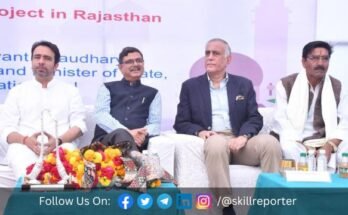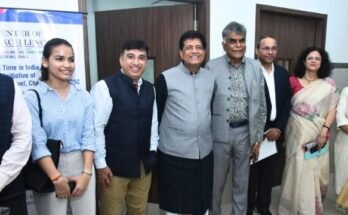Hyderabad : With the onset of Ayushman Bharat, emphasis has been led on building a comprehensive primary care through health and wellness centres for preventive, promotive and curative care. Healthcare experts have come together at the 11th Medical Technology Conference organized by Confederation of Indian Industry (CII) discussing the crucial role played by healthcare workers in a healthcare setting and the importance of skill development for these healthcare professionals.
Improving quality of care at secondary and tertiary facilities and providing universal health coverage and making services equitable, affordable and accessible is of utmost importance. Along with such a development, the need of the hour is to empower healthcare professionals with skill development and medical staff safety to strengthen healthcare systems.
As per available government data, for every 10,000 patients, there are only seven doctors, 17 nurses/midwives, one dentist and five pharmaceutical personnel available. These numbers are far lower than the WHO benchmark of 2.5 doctors and nurses per 1000 people, which reflects the grim reality of Indian healthcare system. Experts believe that this poses a bigger threat to current establishment. However, the real challenge is unavailability of skilled manpower in the healthcare realm and under utilization of current resources is also creating havoc to the already existing talent crunch.
Ashish Jain, CEO, Healthcare Sector Skill Council, said, “The skill gap in the healthcare sector is well known. HSSC is working towards bridging this gap with active collaboration with industry. HSSC would invite medical device sector to work closely with HSSC so that human resource could be developed not only for India but for the world realising the vision of the Prime Minister of India is to make India the skill capital of the world.”
Although government plans to open more medical colleges to improve the projected shortfall of resources, but experts believe that complexity of situation calls for more concrete steps beyond primary health level. Also, there is a misinformation that scarcity of skilled personnel is mainly in rural India and not in urban areas which is not entirely correct.
“With the government’s prioritisation in healthcare, we are hopeful about the future ahead. Studies show that India could possibly be the largest supplier of healthcare workforce to the world. With such a demand, it is an opportunity for BD as a part of the industry to strengthen the capabilities of existing and future healthcare professionals”, says Pavan Mocherla, Managing Director, BD India & South Asia.
The significant knowledge gap in the healthcare workers can ultimately compromise the quality of care provided by them, therefore, training and teaching them about management and prevention of diverse disease burden in India can help achieve the health goals to an extent. Well trained and well organised health professionals will play a substantial role in effective care management.
Note: News shared for public awareness with reference from the information provided at online news portals. Read SKILL REPORTER or Follow SKILLREPORTER on Facebook / Twitter / Linkedin / Google to stay updated with RFP, Tenders, EOI, Jobs, Notifications, Schemes, Projects, News etc. related to Skill Development



